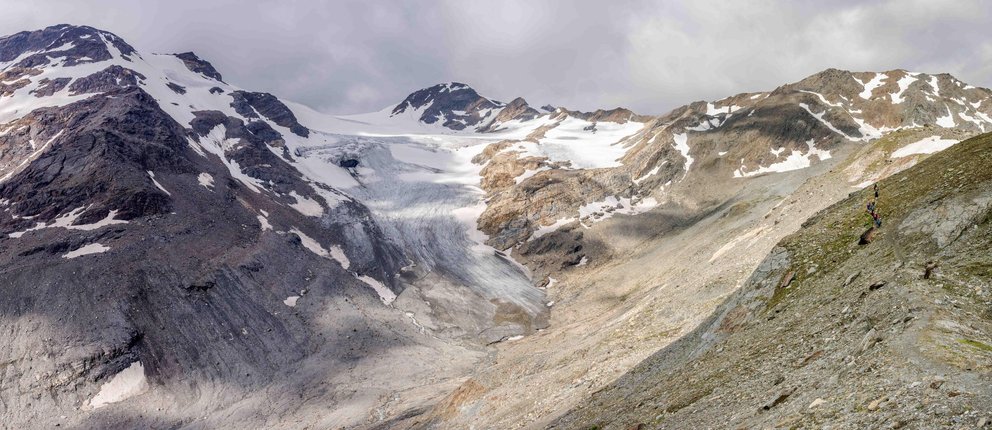Certainties and uncertainties in the future surface mass balance of mountain glaciers
Anthropogenic climate change contributes to worldwide decline of mountain glaciers. In the 21st century, retreating glaciers will cause unprecedented changes in the regional water cycle – a fundament of human civilisation – and contribute to global sea level rise. In a recent glacier model intercomparison study, Marzeion et al. (2020) confirmed widespread future glacier decline by compiling the projections from a large number of glacier models driven by the same climate data. The authors also partitioned the projected uncertainty (i.e., the variance of all possible future outcomes) into various sources: the choice of the glacier model, data input from different climate models and scenarios, and natural climate variability. They showed that the dominant source of uncertainty for the first half of the 21st century (highly relevant for climate adaptation) stems from the different glacier models more than any other source. Each glacier model has their own unique set of process representations and climate forcing methodology, which makes it impossible to determine the model components that contribute most to the projection uncertainty, i.e. that would need further research.
The aim of this PhD project is to better understand the sources of glacier model uncertainty in order to reduce them and to provide more robust and accurate glacier change projections. One of the uncertainty sources comes from the surface mass balance model which describes the net sum of gain (accumulation) and loss (ablation) of ice and snow at the glacier surface. In this PhD project, we will focus on improving the SMB model parameter calibration inside of the Open Global Glacier Model framework (www.oggm.org) by using a Bayesian inverse model that also assesses the uncertainties. In addition, we will include more enhanced SMB models with e.g. an improved temporal resolution and a representation of the snowpack evolution and of refreezing of rain and melt water. The influence on glacier projections from the SMB model choice and SMB parameter calibration uncertainties will be analysed. Further data will be then used to improve the SMB calibration (e.g. to constrain better the precipitation factor) and to eventually reduce the uncertainties of glacier change projections.
The project is part of the Doctoral programme Mountain Climate and Environment and also well embedded in the Climate Research Centre at the University of Innsbruck. Our results and model developments will be made freely available so that future studies can build upon our work.

Project
Project Leader:
Fabien MAUSSION
Lindsey NICHOLSON
Members:
Lilian SCHUSTER
Funding Agencies:
Universität Innsbruck, Doctoral programme "Mountain Climate and Environment"
DOC Fellowship Programme of the Austrian Academy of Sciences (grant number : 25928)
Project Duration:
01/09/2020 to 30/11/2024
